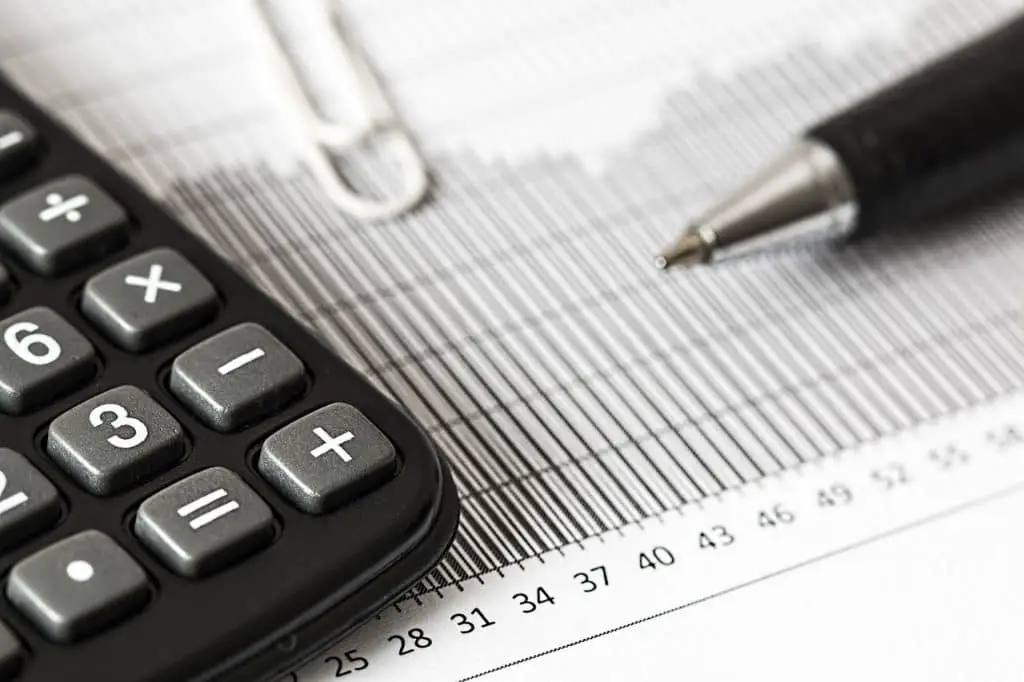We’re going to take a look at some AP calculus tips and test-taking strategies throughout this post so you can figure out what it’s going to take to get a five on your test. After all, you’ve been putting in all that work in class, and you definitely want to get the benefits from it, right? We’re going to look at everything you’re going to need in this AP calculus BC review packet.
There are two different parts to this test, which include an AP calculus AB multiple choice and a free response question area. Within each of those parts, you’ll actually find two different sections. One of the multiple choice sections and one of the free response sections will each allow you to use a calculator. One of each will not in this AP Calculus AB test prep.
You’ll need to be very careful about how you study for this test because you need to not only know your formulas. You’re also going to need to know quite a bit about how you can use your calculator to get there. In problems that you can use your calculator, you need to know how it’s going to work and how to program functions.
The tests that you get for AP calculus are provided by CollegeBoard, and they use qualified proctors to grade all of the results. It’s important to note that only things that are written in your answer booklet will actually be graded. The readers will not be given your test booklet.
If you’re looking to get credit for your test from a specific college or university make sure you check their requirements so you can be prepared for the AP calculus exam answers. Some institutions require you to have higher scores than others with most requiring either a 4 or a five so this is the AP Calculus AB score distribution that you want.
With all of this information you should definitely be able to prepare yourself even better and you should be able to set yourself up for a good score. It’s going to be entirely up to you to actually achieve the great score that you want, but if you have these tips you should have a head start over some of your fellow students.
At this point, let’s take a look at this AP calculus AB cheat sheet with things you need to know so you can start preparing yourself for your test. Hopefully, each of these strategies is going to make it a little easier on you.
If you still need to find an AP Calculus study guide, read our guide to the best AP Calculus AB and AP Calculus BC review books here.
General How to Study for AP Calculus Tips
Let’s start with some of the general study tips that you should know. These are still primarily focused on the AP calculus exam; however, so make sure you’re taking a look and putting these ideas into practice. The AP calculus test is a total of 3 hours and 15 minutes and consists of a 45 question multiple choice section and a 6 question free response section. For part of each section, you will be allowed to use a calculator and for part, you will not.
1. Keep track of time
The very first thing you need to do is know how much time you actually have and how you’re going to use it. You need to make sure that you’re always aware of how much time is left. That way you know you can actually complete the test. Read our article on time management here.
2. Get a quality graphing calculator
Make sure you have a high-quality calculator that has graphing functions. A scientific calculator is not going to cut it anymore once you get to this test. You need to have a calculator that can take care of graphs.
3. All questions are on one of three things
Your questions are either about limits, derivatives or integrals. Just ask yourself which of these three things it’s about when you look at a question you don’t know. You’ll have a head start on how to solve it.
4. Study your calculator functions
In order to do well on this test, you’re going to need to know how to use the graphing functions and table functions of your calculator as well as how to calculate integrals, derivatives, and logarithms.
5. Memorize your formulas
The only way you’re going to have all the formulas that you need is if you take the time to memorize them. This could take a while and require some hard work, but make sure you know all of them. You’ll need them.
6. Create a formula sheet
Creating an AP calculus AB formula sheet can help you to study and practice the different formulas and gives you an easier way that you can actually memorize them.
7. Know what the words mean
If you don’t know what the specific terms actually mean you’re going to have a really hard time understanding the questions or answering them.
8. Relax if you don’t know
If you get to test day and realize that there is a question you have no idea how to answer that’s okay. The best thing you can do is work out the questions you do and then go back to it if there’s time left (and don’t leave it blank).
9. Know your derivatives
You’re likely going to see a whole lot of trigonometric derivatives when you’re taking this test so make sure that you pay attention to them when you’re studying and that you memorize them.
10. Check what’s actually on the test
You don’t want to waste your time studying things that aren’t even going to be on your test. Take a few minutes to look at what CollegeBoard says you’ll be tested on and study that only.
11. Practice problems
You’re going to need to be familiar and perfectly comfortable with the different concepts involved in your test. Make sure you’re practicing plenty of the sample problems so you can get used to this.
12. Know rules and how to apply them
You need to understand all of the rules that go along with different formulas and different types of equations and you need to know how they actually work.
13. Stay focused
While you’re studying and the day of the test make sure that you’re staying completely focused on what’s in front of you. Don’t let anything around you distract you from what you’re doing. With math this is especially important because you need to keep your numbers and formulas straight.
14. Re-read the questions
Even if you think you know what the question is asking to make sure that you read it through a second time so you can be sure. You may see something that you missed.
15. Don’t round before the end
When you’re working out a problem for either section make sure you’re not rounding any of the numbers. You want to use the number exactly as it is until you get to the very end. At that point you can round if you need to, but only if you need to.
16. Know Your Theorems and How They Work
If you can’t explain a theorem in the way you would explain it to someone that has never done it before you need to practice them even more.
17. Know what you can and can’t use a calculator for
There are going to be some areas of the test that you can’t use a calculator for. Make sure you know as much as possible about these sections so you can prepare to do them manually.
18. Do not use calculator notation
When you’re writing out an answer or choosing an answer on the multiple choice section make sure you use the correct notation and not calculator notation which could lose you points.
19. Know how to use your calculator
There are sometimes multiple ways that you can get an answer to a question you’re working on, but not all of them are going to give you the same answer or the accurate one. Know how to get the right answer. Make sure you practice with your calculator for different types of equations.
20. The question book is not given to readers
If you show your work in your test booklet, you’re not going to get credit for it. You need to show work on your answer sheet in order for readers to see it.
21. Never assume numbers or values
If you’re given a problem or a graph or a chart, you should never assume anything. You only know the value if it is given to you or if you use a given/correct equation to find it. Don’t look at a graph and assume a point is at a particular spot.
22. Use the proper units
When you write out an answer or choose an answer make sure that it has the proper units associated with it. You can and will lose points if you forget to add them in.
23. Keep your steps and answers organized
The readers are going to be looking at a lot of tests, and it makes things difficult if they have to try and find the information they need to grade. Keep things organized to make it easier for them, or you could lose points.
24. Do not simplify partial answers
If you get to a partial answer make sure you’re not simplifying anything. The partial answer should be your final answer.
25. Set up study groups
Study groups can make it a lot easier for you to study the information and to get help in areas where you might not be as strong. Just make sure to keep the group small so that it’s manageable.
26. Find your weak areas
By taking practice tests you’ll be able to determine the areas that you’re weakest in and this will help you figure out what areas you should be spending more time on.
27. Understand the graphs
If there’s a graph in the test make sure you know why it’s there and what it actually represents. That’s how you’re going to be able to use it for the answer to your question or to do your equations.
28. Know why you got questions wrong on practice tests
Pay attention to whether you’re doing equations wrong, using the wrong equation or not reading the question correctly when you get questions wrong. This will help you figure out how to fix the problem.
29. Start studying as early as possible
The best thing you can do is start studying for your test early so you can have as long as possible to actually go over the material and brush up on things you’re not comfortable with.
Study books and guides are going to make it a lot easier for you to know what material is important and even which specific things are on the test. The AP calculus AB review book will mean a lot for your studies.
31. Take short breaks
On test day you’re going to be doing a lot of writing. If you find yourself struggling because your hand hurts or you’re just not sure how to keep going take a moment to close your eyes and just breathe and get back to it.
32. Create your own schedule
Setting up a study schedule is going to be an important part of the process and could help you to be fully prepared each day for what you’re going to study and how long you’ll study.
33. Use flashcards
Especially when you’re working with formulas, you’ll likely find that flash cards make it easier for you to keep track of how each one works and what they’re each called or used for.
34. Take practice tests
If you haven’t taken an AP calculus AB practice exam, you’re definitely going to find yourself struggling when it comes time to take the actual test and everything it entails.
AP Calculus Multiple-Choice Review Tips
When it comes to the multiple choice section of your test you’re actually going to have 45 questions. If you’re wondering how long is the AP Calculus BC exam you’ll have a total of 1 hour and 45 minutes to complete them. This is broken down into two sections. The first section is 30 questions where you will have 60 minutes, approximately 2 minutes per question, to answer without a calculator. Together these comprise 50% of your test score, so put some samples in your AP calculus AB review packet.
35. No points removed for incorrect answers
The old test used to count incorrect answers against you. This is no longer the case. You’re not going to lose points for an incorrect answer so there is no reason that you shouldn’t guess on questions that you don’t know the answer to.
36. Answer easy questions first
Skim through the questions before you start working your way through the book. Start with the questions that you absolutely know or that you can find out the answer easily.
37. Process of elimination
If you don’t know an answer or you’re not sure how to figure it out wait until the end when you’re low on time. At that point, use process of elimination to get rid of as many answers as possible and then make an educated guess.
38. Simplify your answers
If you can’t find the answer that you arrived at in the answer options try to simplify your answer. You may find the answer once you do, but if you don’t go back and check your math again.
39. Fully develop the chain rule
This falls under the category above about knowing your rules, but this is an especially important one. It’s also one that you’re likely to see more than once on your test.
40. Make sure you’ve answered the question being asked
Read through the question and make sure that you’re answering the correct question as the answer to incorrect versions may also be there.
41. Pace yourself
Don’t run out of time for each of the questions. Pace yourself and make sure you keep following your own time in order to get through everything.
42. Don’t overthink it
The questions are generally not too difficult, which means you shouldn’t overthink it or spend too much time going back over answers you already finished.
43. Ignore your distracters
There will be some answers that are thrown in just to throw you off. Make sure you can easily and quickly recognize these and that you can throw them out just as easily.
44. Use official practice questions
Multiple choice questions may seem like they would be simple but make sure you’re using some official sources to find practice questions so you have a good idea what they’ll be like.
AP Calculus Free Response Question Tips
The free-response section of the AP calculus exam consists of 6 questions total, which take 1 hour and 30 minutes. This is through two separate sections. The first section is only two questions and offers 30 minutes, which is a total of 15 minutes per question, and you are allowed to use a calculator. The second section is four questions with 60 minutes and does not allow you to use a calculator. Together, these are 50% of your total score.
45. Practice old FRQ’s
The old questions are actually posted and available directly through CollegeBoard. You should definitely be looking at them because these questions are going to be a good idea of what you’ll see on your test. These calculus practice test questions will greatly help you.
46. Don’t bother erasing
When it comes to free response questions you don’t need to waste time erasing an answer if you decide that it’s not correct. You can cross it out, and the readers will ignore it.
47. Watch out for linkage errors
You want to make sure you’re putting new equations on an entirely different line. Don’t add on parts of an equation at the end of the previous equation. You’ll end up marked down for showing your work improperly.
48. Watch out for presentation errors
When you write out your answer make sure that you present it properly and point out what the answer is supposed to be or what you’ve ‘found.’
49. Don’t make them assume
The reader of your test is not going to assume anything. If it’s not written down, they have no idea if you know it or thought of it. Make sure you write out everything that is required to understand your answer.
50. Get partial credit
You can receive partial credit for questions that you answer. This can happen if you show the formulas properly, if you answer parts of the question and if you get the answer. Work for the partial credit.
51. Start With Concepts You Don’t Know
When you’re studying for this section you should start out with concepts that you already know you don’t know or that you’re not comfortable with. That’s the top of your AP calculus AB study guide.
52. Look at Sample Responses
The company provides sample responses and show what the readers are going to be looking for so you can stick to these areas. It also lets you know more about the different ways to respond to a question.
53. Once part b starts you can continue part a
If you aren’t able to finish part A of your test before the time ran out, but you finish part B early you can go back to part A. You won’t be able to use a calculator at this point, however.
54. No ‘It’
If you’re referring to a specific number or to ‘x’ or ‘y’ or any other function you should never refer to ‘it.’ Always use the specific letter or designator when referring to anything in your statements.
55. Read all the questions before you start
Before you choose where you’re going to start, you should take the time to read through all of the questions. This will help you to figure out which question you want to start with.
56. Answer the question as asked
You could find yourself adding extra content to what you’re writing but this is only going to take up more time, and it’s not going to help you get more points. Only answer the part of the question that you’re asked to.
57. Answer each part of multi-step questions
There will generally be all multi-step questions so make sure that you actually answer every piece and that you label each one. This will ensure you get total credit.
58. Label graphs and figures
When you have to draw out graphs or figures make sure you label them, so there is no confusion among those who are grading your test what you’re trying to say.
59. Write to 3 decimal places
Every answer that you write out should be filled out to 3 decimal places. This is a standard for the test so make sure you’re not rounding or stopping any closer or you could end up with an incorrect answer.
60. Show all work
If you show all of your work you may be able to get partial credit even if you don’t get the answer correct. This shows the reader that you know what you’re doing.
61. Write the equation
This may seem like it goes along with showing all of your work but make sure that you don’t skip over this part. It lets the reader know that you know how to start out and even if you make a mistake from here you’ll at least get some points.
62. Answer the parts you know
If you don’t know all the pieces of multi-step question make an educated estimate for the earlier sections and answer the later parts. You may be able to get at least some credit.
63. Always write something
If you aren’t sure about the entire problem write out what you do know. If you know, some sections but not all then write them down. If you know the equation and the setup but you can’t solve it still write it out. Partial credit is better than nothing.
64. Mark the equation
When you’re reading through the question mark the equation if it’s given to you. That way, when you get to working out the answer, you already have the formula or equation you need.
65. Justify clearly in as few words as possible
If you’re asked to justify your answer you need to do so clearly but don’t use too many extra words. You don’t need to explain yourself too much.
66. If you mark an answer, it’s the only one considered
If you circle or otherwise delineate that a specific portion of your content is the answer that’s the answer as far as the reader is concerned, no matter what else is written on the paper.
67. Don’t simplify your answers
In this section, you shouldn’t simplify your answers. The answer is going to be as far as you’re supposed to mark it down and you should avoid simplifying it too much.
68. Double check
If you have time, go back and check the answers that you have for the FRQ questions. Make sure you cross out any answers you decide are not correct and rewrite the correct answer.
AP Calculus Test Day Tips
When it comes to the actual day of the test you’re going to need to go through a few different steps and processes to make sure that you’re fully prepared and ready to go. So there’s no easy answer to how to pass calculus without studying or how to pass AP Calculus AB class. You’re going to want to keep yourself comfortable and definitely make sure that you’re not going to miss out on anything.
69. Get Plenty of Sleep
Getting sleep means that you’re going to be focused and you’re going to be wide awake when it comes time for the test. You’ll be able to pay attention to each of the questions and you’ll have no problem getting through the whole day.
70. Relax the Day Before
Take some time off the day before your test rather than trying to cram anymore. You’re not going to be able to remember anything else this late in the game anyway.
71. Lay out what you need
Make sure that you pack everything you’re going to need the day before the test. That means lay out the clothes you’re going to wear and pack up your pens and pencils, your calculator and anything else you’ll need.
72. Know Where to Be and When
Make sure you check out where you’re supposed to be down to the room number and make sure you know what time you’re supposed to be there.
73. Make Sure Your Calculator is Approved
Not every type of calculator is going to be approved so make sure that yours is before you get to the test day. You do not want to have to walk in without a calculator at all.
74. Have extra calculator batteries
Have extra batteries for your calculator. If anything happens, you definitely don’t want to be left without a calculator to help you along where you can use it.
75. Take breaks
There will be breaks during the test. Make sure you take advantage of them and use them as well as you can. You’ll be able to get further along and feel more focused as you take the test if you just take a few minutes to breathe.
Hopefully, each of these tips is going to make it a whole lot easier for you to get a great result on your AP calculus test. Making sure you have a great quality calculator, paying attention to the question and what it’s asking and making sure to answer all part of the question is definitely going to help you along and make sure that you’re getting as many points as possible when you sit down for your test. And don’t forget to start with an AP calculus AP practice test.
One last thing, if you need extra resources, don’t forget to check out our guide to the best AP Calculus AB and AP Calculus BC review books here and if you want to know what AB and BC stands for in AP Calculus, check out our post on that here.














